![]()
Jesus presented"A way of salvation and enlightenment based upon knowledge of the self and the divine.”

“As I have tried to show in this essay, the Gospel of Judas appears to be an early Christian Sethian gospel with teachings of Jesus presented to Judas Iscariot, to announce a way of salvation and enlightenment based upon knowledge of the self and the divine. The message of the Gospel of Judas is that, just as Jesus is a spiritual being who has come from the above and will return to glory, so also the true followers of Jesus are people of the soul, whose being and destiny are with the divine. Already those who know themselves can live in the strength of the inner person, the "perfect human" mentioned by Jesus in his comments to the disciples (35). At the end of their mortal lives, people who belong to the great generation of Seth will abandon everything of this mortal world, in order to free the inner person and liberate the soul.”- The Gospel of Judas, pages 166
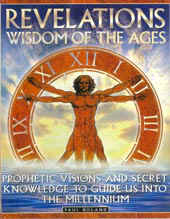
“The verses repeatedly stress that "the Kingdom" is within us—and not, as the Church has insisted, in the heavens barred to the "sinner" by Saint Peter. One reason for the Church's vehement opposition to the Thomas gospel was the inclusion of Jesus' repeated warning to us not to entrust our spiritual development and well-being to others, be they priests, politicians or prophets.”
Paul Roland, Revelation: Wisdom of the Ages,
Ulysses Press, 1995, p. 51.
“And now, in the last quarter of the century, there is a renewed interest in the esoteric, but this is of a more mature, spiritual nature than was shown by the sensational spiritualism of the earlier period. Esoteric thought, it seems, is not immune to a renewed surge of energy and looks like being stimulated into a re-evaluation of its beliefs, just at a time when the rest of humanity will have to question theirs.
Through Alice Bailey, "The Tibetan" predicted that in the first quarter of the 21st century there will be a restoration of the Ancient Mysteries, which have been debased by Black Magic. These will now be expressed at a higher level. This is part of the "Great Plan" and will pave the way for an event described as "externalization of the Hierarchy", when those on earth who are spiritually advanced will work consciously with the brotherhood to help humanity.
The effect of this surge in our spiritual evolution is predicted to be dramatic, especially for those who are unprepared. Such people will resist the changes, clinging all the more desperately to their materialistic values.
“The Mysteries will be restored in other ways also, for they contain much besides which the Masonic rites can reveal or that religious rituals and ceremonies can disclose ... The Mysteries will restore colour and music as they essentially are to the world ... in such a manner that the creative art of today will be to this new creative art what a child's building of wooden blocks is to a great cathedral such as Durham or Milan. The Mysteries, when restored, will make real—in a sense incomprehensible to you at present—the nature of religion, the purpose of science and the goal of education. These are not what you think today ...”
Beyond these sensational claims of a world-wide re-awakening to the Ageless Wisdom is the fundamental belief shared by many of the esoteric and religious traditions that man must first demonstrate the will to develop, before the benign forces—whether we imagine them to be "Hidden Masters," our own Higher Self or a Messiah—are allowed to intervene to help us.” "
Paul Roland, Revelation: Wisdom of the Ages,
Ulysses Press, 1995, p. 133
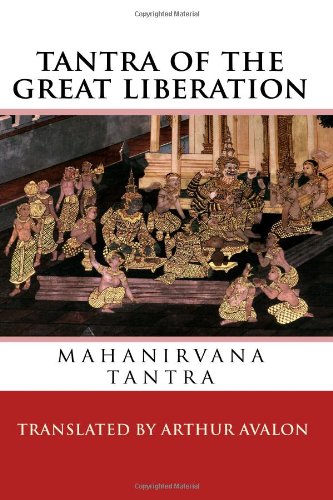
Shri Sadashiva said:
So long as a man has not real knowledge, he does not attain final liberation, even though he be in the constant practice of religious acts and a hundred austerities (111).
The knowledge of the wise from whom the darkness of ignorance is removed, and whose souls are pure, arises from the performance of duty without expectation of fruit or reward, and by constant meditation on the Brahman (112).
He who knows that all which is in this universe from Brahma to a blade of grass is but the result of Maya, and that the Brahman is the one and supreme Truth, has this (113).
That man is released from the bonds of action who, renouncing name and form, has attained to complete knowledge of the essence of the eternal and immutable Brahman (114).
Liberation does not come from japa, homa, or a hundred fasts; man becomes liberated by the knowledge that he himself is Brahman (115).
Final liberation is attained by the knowledge that the Atma (Soul) is the witness, is the Truth, is omnipresent, is one, free from all illuding distractions of self and not-self, the supreme, and, though abiding in the body, is not in the body (116).
All imagination of name-form and the like are but the play of a child. He who put away all this sets himself in firm attachment to the Brahman, is, without doubt, liberated (117).
If the image imagined by the (human) mind were to lead to liberation, then undoubtedly men would be Kings by virtue of such kingdoms as they gain in their dreams (118).
Those who believe that Ishvara is in images made of clay, or stone, or metal, or wood, merely trouble themselves by their tapas. They can never attain liberation without knowledge (119).
Can men attain final liberation by restriction in food, be they ever so thin thereby, or by uncontrolled indulgence, be they ever so gross therefrom, unless they possess the knowledge of Brahman? (120).
If by observance of Vrata to live on air, leaves of trees, bits of grain, or water, final liberation may be attained, then snakes, cattle, birds, and aquatic animals should all be able to attain final liberation (121).
Brahma-sad-bhava is the highest state of mind; dhyana-bhava is middling; stuti and japa is the last; and external worship is the lowest of all (122).
Yoga is the union of the embodied soul and the Supreme Soul, Puja is the union of the worshiper and the worshipped; but he who realizes that all things are Brahman for him there is neither Yoga nor Puja (123).
For him who possesses the knowledge of Brahman, the supreme knowledge, of what use are japa, yajna, tapas, niyama, and vrata? (124).
He who sees the Brahman, Who is Truth, Knowledge, Bliss, and the One, is by his very nature one with the Brahman. Of what use to him are puja, dhyana, and dharana? (125).
For him who knows that all is Brahman there is neither sin nor virtue, neither heaven nor future birth. There is none to meditate upon, nor one who meditates (126).
The soul which is detached from all things is ever liberated; what can bind it? From what do fools desire to be liberated? (127).
He abides in this Universe, the creation of His powers of illusion, which even the Devas cannot pierce. He is seemingly in the Universe, but not in it (128).
The Spirit, the eternal witness, is in its own nature like the void which exists both outside and inside all things, and which has neither birth nor childhood, nor youth nor old age, but is the eternal intelligence which is ever the same, knowing no change or decay (129-130).
It is the body which is born, matures, and decays. Men enthralled by illusion, seeing this, understand it not (131).
As the Sun (though one and the same) when reflected in different platters of water appears to be many, so by illusion the one soul appears to be many in the different bodies in which it abides (132).
As when water is disturbed the Moon which is reflected in it appears to be disturbed, so when the intelligence is disturbed ignorant men think that it is the soul which is disturbed (133).
As the void inside a jar remains the same ever after the jar is broken, so the Soul remains the same after the body is destroyed (134).
The knowledge of the Spirit, O Devi! is the one means of attaining final liberation; and he who possesses it is verily, yea, verily, liberated in this world, even yet whilst living, there is no doubt of that (135).
Neither by acts, nor by begetting offspring, nor by wealth is man liberated; it is by the knowledge of the Spirit, by the Spirit that man is liberated (136).
It is the Spirit that is dear to all; there is nothing dearer than the Spirit; O Shive! it is by the unity of Spirit that men become dear to one another (137).
Knowledge, Object of knowledge, the knower appear by illusion to be three different things; but if careful discrimination is made, Spirit is found to be the sole residuum (138).
Knowledge is Spirit in the form of intelligence, the object of knowledge is Spirit whose substance is intelligence, the Knower is the Spirit Itself. He who knows this knows the Spirit (139).
I have now spoken of knowledge which is the true cause of final liberation. This is the most precious possession of the four classes of Avadhutas (140).
Arthur Avalon, Mahanirvana Tantra of the Great Liberation
Kessinger Publishing (June 30, 2004)

The Paraclete Sri Mataji
“This union of Atma and Shakti as the protector of one's existence is important
to understand ... At a practical level what this means is that if one goes
against the Spirit, identifying with anything apart from it, the heart
'catches'...When we come to Sahaja Yoga the Tantra is damaged and impure and the heart 'catches.' There is nothing to be upset in that. One should settle down silently and work to undo the 'catches,' gradually and slowly. The whole Library of Divine Knowledge is at one's hand and if the heart's desire to evolve the being and achieve the Absolute is pure, the solution to every problem will occur automatically, effortlessly and spontaneously — Sahaj.
The ultimate act against the Spirit is to worship that which has no Spirit — gross matter or raksasas. Shri Muhammad inveighed against both.... The Atma and its expression is the sole Reality in the Universe. Identification with anything else causes the heart to 'catch.'"
The Paraclete Shri Mataji
.jpg)
The Paraclete "The first point is ego. We have such ego that you cannot get rid of it. We have subtle and subtle ways of having egos like "I have come from this country, I must have ego"," I come from this kind of family, I must have ego.” All kinds of stupid things they do, which are really sinful and they think they're very great if they have ego. This ego you have to fight, otherwise your resurrection is not possible; your attention cannot pass through the Agnya Chakra. As long as they have given us satanic identifications, it will not work out. it's a very subtle happening — very, very subtle happening — that you should see your own ego. 'After Realization' - I said - 'You know yourself'; the first thing you will know is that you have too much of conditioning and too much of ego.... Like in India, I find people have so much conditioning of their so-called rituals — very ritualistic. Everything is a ritual with them and they cannot get out of it; that's all the conditioning.... But ego is the worst part in the West - more in the West, where I don't know what they think of themselves!"
The Paraclete Shri Mataji
Easter Puja. Istanbul, Turkey—22 April 2001
Related Articles
The resurrection of Jesus is not the central datum of Christianity
Deepak Chopra: "Jesus belongs to the world. The promise ...”
Crucifixion demonstrates"What dies is mortal body, not living spirit"
Entrance into Kingdom of God which Jesus speaks
The granting of the spirit of holiness is viewed as yet to take place ...
The Second Birth of Man—In Spirit
Eschatological aspect of the kingdom possesses for Jesus ...
Resurrection is accomplished by the wind of heaven
The Resurrection of Christ within You
Jesus rebukes those who seek access to God elsewhere
Jesus proclaimed"salvation through knowledge ... of the divine light"
Jesus presented"salvation .. based upon knowledge of self"
Apokalypsis: The fulfillment of eschatological instruction by the Paraclete in the Age to Come promised by Jesus at the Last Supper
“The original meaning of the word ‘apocalypse’, derived from the Greek apokalypsis, is in fact not the cataclysmic end of the world, but an ‘unveiling’, or ‘revelation’, a means whereby one gains insight into the present.” (Kovacs, 2013, 2)
An apocalypse (Greek: apokalypsis meaning “an uncovering”) is in religious contexts knowledge or revelation, a disclosure of something hidden, “a vision of heavenly secrets that can make sense of earthly realities.” (Ehrman 2014, 59)
“An apocalypse (Ancient Greek: apokalypsis ... literally meaning "an uncovering") is a disclosure or revelation of great knowledge. In religious and occult concepts, an apocalypse usually discloses something very important that was hidden or provides what Bart Ehrman has termed, "A vision of heavenly secrets that can make sense of earthly realities". Historically, the term has a heavy religious connotation as commonly seen in the prophetic revelations of eschatology obtained through dreams or spiritual visions.” Wikipedia 2021-01-09
An apocalypse (Greek: apokalypsis meaning “an uncovering”) is in religious contexts knowledge or revelation, a disclosure of something hidden, “a vision of heavenly secrets that can make sense of earthly realities.” (Ehrman 2014, 59)
“An apocalypse (Ancient Greek: apokalypsis ... literally meaning "an uncovering") is a disclosure or revelation of great knowledge. In religious and occult concepts, an apocalypse usually discloses something very important that was hidden or provides what Bart Ehrman has termed, "A vision of heavenly secrets that can make sense of earthly realities". Historically, the term has a heavy religious connotation as commonly seen in the prophetic revelations of eschatology obtained through dreams or spiritual visions.” Wikipedia 2021-01-09
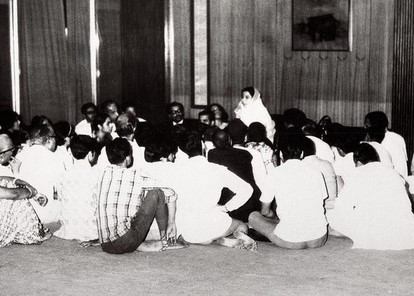
Shri Mataji Nirmala Devi (1923-2011) was Christian by birth, Hindu by marriage, and Paraclete by duty.
Total number of recorded talks 3058: Public Programs 1178, Pujas 651, and other (private conversations) 1249
“The Paraclete will come (15:26; 16:7, 8, 13) as Jesus has come into the world (5:43; 16:28; 18:37)... The Paraclete will take the things of Christ (the things that are mine, ek tou emou) and declare them (16:14-15). Bishop Fison describes the humility of the Spirit, 'The true Holy Spirit of God does not advertise Herself: She effaces Herself and advertises Jesus.' ...
It is by the outgoing activity of the Spirit that the divine life communicates itself in and to the creation. The Spirit is God-in-relations. The Paraclete is the divine self-expression which will be and abide with you, and be in you (14:16-17). The Spirit's work is described in terms of utterance: teach you, didasko (14:26), remind you, hypomimnesko (14:26), testify, martyro (15:26), prove wrong, elencho (16:8), guide into truth, hodego (16:13), speak, laleo (16:13, twice), declare, anangello (16:13, 14, 15). The johannine terms describe verbal actions which intend a response in others who will receive (lambano), see (theoreo), or know (ginosko) the Spirit. Such speech-terms link the Spirit with the divine Word. The Spirit's initiatives imply God's personal engagement with humanity. The Spirit comes to be with others; the teaching Spirit implies a community of learners; forgetful persons need a prompter to remind them; one testifies expecting heed to be paid; one speaks and declares in order to be heard. The articulate Spirit is the correlative of the listening, Spirit-informed community.
The final Paraclete passage closes with a threefold repetition of the verb she will declare (anangello), 16:13-15. The Spirit will declare the things that are to come (v.13), and she will declare what is Christ's (vv. 14, 15). The things of Christ are a message that must be heralded...
The intention of the Spirit of truth is the restoration of an alienated, deceived humanity... The teaching role of the Paraclete tends to be remembered as a major emphasis of the Farewell Discourses, yet only 14:26 says She will teach you all things. (Teaching is, however, implied when 16:13-15 says that the Spirit will guide you into all truth, and will speak and declare.) Franz Mussner remarks that the word used in 14:26, didaskein, "means literally 'teach, instruct,' but in John it nearly always means to reveal.” (Stevick 2011, 292-7)
The Holy Spirit as feminine: Early Christian testimonies and their interpretation,
Johannes van Oort, Radboud University, Nijmegen, The Netherlands
Department of Church History and Church Polity, Faculty of Theology, University of Pretoria, South Africa
Total number of recorded talks 3058: Public Programs 1178, Pujas 651, and other (private conversations) 1249
“The Paraclete will come (15:26; 16:7, 8, 13) as Jesus has come into the world (5:43; 16:28; 18:37)... The Paraclete will take the things of Christ (the things that are mine, ek tou emou) and declare them (16:14-15). Bishop Fison describes the humility of the Spirit, 'The true Holy Spirit of God does not advertise Herself: She effaces Herself and advertises Jesus.' ...
It is by the outgoing activity of the Spirit that the divine life communicates itself in and to the creation. The Spirit is God-in-relations. The Paraclete is the divine self-expression which will be and abide with you, and be in you (14:16-17). The Spirit's work is described in terms of utterance: teach you, didasko (14:26), remind you, hypomimnesko (14:26), testify, martyro (15:26), prove wrong, elencho (16:8), guide into truth, hodego (16:13), speak, laleo (16:13, twice), declare, anangello (16:13, 14, 15). The johannine terms describe verbal actions which intend a response in others who will receive (lambano), see (theoreo), or know (ginosko) the Spirit. Such speech-terms link the Spirit with the divine Word. The Spirit's initiatives imply God's personal engagement with humanity. The Spirit comes to be with others; the teaching Spirit implies a community of learners; forgetful persons need a prompter to remind them; one testifies expecting heed to be paid; one speaks and declares in order to be heard. The articulate Spirit is the correlative of the listening, Spirit-informed community.
The final Paraclete passage closes with a threefold repetition of the verb she will declare (anangello), 16:13-15. The Spirit will declare the things that are to come (v.13), and she will declare what is Christ's (vv. 14, 15). The things of Christ are a message that must be heralded...
The intention of the Spirit of truth is the restoration of an alienated, deceived humanity... The teaching role of the Paraclete tends to be remembered as a major emphasis of the Farewell Discourses, yet only 14:26 says She will teach you all things. (Teaching is, however, implied when 16:13-15 says that the Spirit will guide you into all truth, and will speak and declare.) Franz Mussner remarks that the word used in 14:26, didaskein, "means literally 'teach, instruct,' but in John it nearly always means to reveal.” (Stevick 2011, 292-7)
The Holy Spirit as feminine: Early Christian testimonies and their interpretation,
Johannes van Oort, Radboud University, Nijmegen, The Netherlands
Department of Church History and Church Polity, Faculty of Theology, University of Pretoria, South Africa
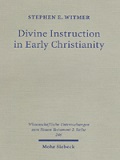
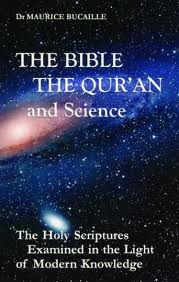
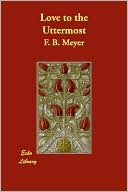
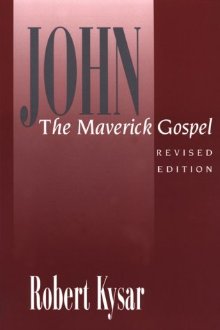
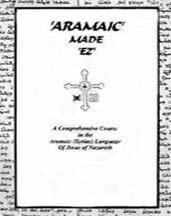
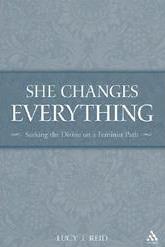
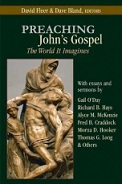
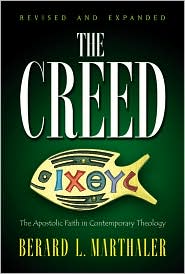
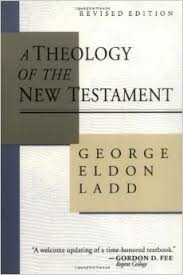
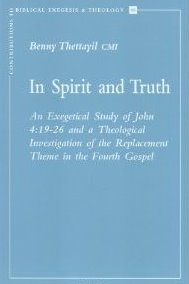

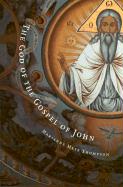
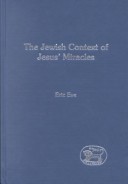
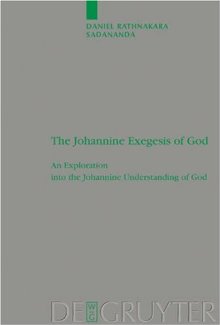

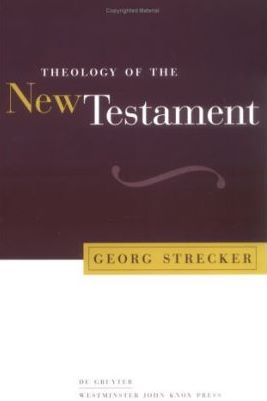
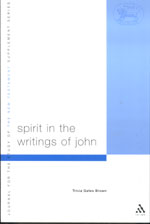
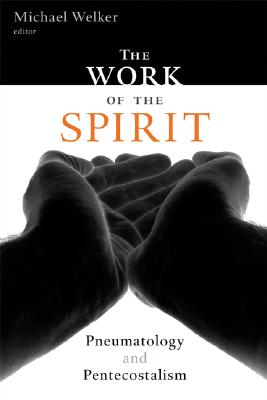
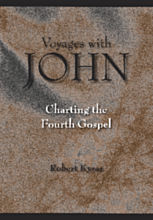
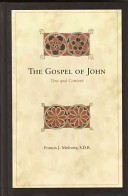
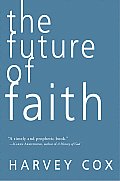
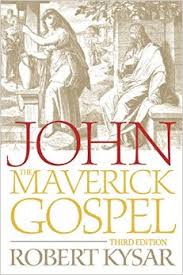
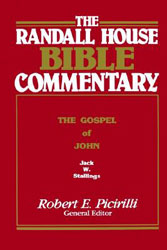
 “The teaching of the Paraclete, as the continuation of Jesus' teaching, must also be understood as the fulfillment of the promise of eschatological divine instruction.”
“The teaching of the Paraclete, as the continuation of Jesus' teaching, must also be understood as the fulfillment of the promise of eschatological divine instruction.”Stephen E. Witmer, Divine instruction in Early Christianity
“Jesus therefore predicts that God will later send a human being to Earth to take up the role defined by John .i.e. to be a prophet who hears God's words and repeats his message to man.”
M. Bucaille, The Bible, the Qur'n, and Science
“And when Jesus foreannounced another Comforter, He must have intended a Person as distinct and helpful as He had been.”
F. B. Meyer, Love to the Utmost
“The Paraclete has a twofold function: to communicate Christ to believers and, to put the world on trial.”
Robert Kysar, John The Meverick Gospel
“But She—the Spirit, the Paraclete...—will teach you everything.”
Danny Mahar, Aramaic Made EZ)
“Grammatical nonsense but evidence of the theological desire to defeminize the Divine.”
Lucy Reid, She Changes Everything
“The functions of the Paraclete spelled out in verses 13-15... are all acts of open and bold speaking in the highest degree.”
David Fleer, Preaching John's Gospel
“The reaction of the world to the Paraclete will be much the same as the world's reaction was to Jesus.”
Berard L. Marthaler, The Creed: The Apostolic Faith in Contemporary Theology
Bultmann calls the “coming of the Redeemer an 'eschatological event,' 'the turning-point of the ages.”
G. Ladd, A Theology of the New Testament
“The Paraclete equated with the Holy Spirit, is the only mediator of the word of the exalted Christ.”
Benny Thettayil, In Spirit and Truth
“The divine Paraclete, and no lessor agency, must show the world how wrong it was about him who was in the right.”
Daniel B. Stevick , Jesus and His Own: A Commentary on John 13-17
Stephen Smalley asserts that “The Spirit-Paraclete ... in John's Gospel is understood as personal, indeed, as a person.”
Marianne Thompson, The God of the Gospel of John
“The Messiah will come and the great age of salvation will dawn (for the pious).”
Eric Eve, The Jewish context of Jesus' Miracles
“The remembrance is to relive and re-enact the Christ event, to bring about new eschatological decision in time and space.”
Daniel Rathnakara Sadananda, The Johannine Exegesis of God
“The Spirit acts in such an international situation as the revealer of 'judgment' on the powers that rule the world.”
Michael Welker, God the Spirit
The Paraclete's “Appearance means that sin, righteousness, and judgment will be revealed.”
Georg Strecker, Theology of the New Testament
“While the Spirit-Paraclete is the true broker, the brokers they rely on are impostors.”
T. G. Brown, Spirit in the writings of John
“The pneumatological activity ... of the Paraclete ... may most helpfully be considered in terms of the salvific working of the hidden Spirit.”
Michael Welker, The work of the Spirit
“The pneuma is the peculiar power by which the word becomes the words of eternal life.”
Robert Kysar, Voyages with John
“The gift of peace, therefore, is intimately associated with the gift of the Spirit-Paraclete.”
Francis J. Moloney, The Gospel of John
“This utopian hope, even when modestly expressed, links Jesus and the prophets to a much wider history of human longing.”
Harvey Cox, The Future of Faith
“Because of the presence of the Paraclete in the life of the believer, the blessings of the end-times—the eschaton—are already present.”
Robert Kysar, John
“They are going, by the Holy Spirit's power, to be part of the greatest miracle of all, bringing men to salvation.”
R. Picirilli, The Randall House Bible Commentary
“The Kingdom of God stands as a comprehensive term for all that the messianic salvation included... is something to be sought here and now (Mt. 6:33) and to be received as children receive a gift (Mk. 10:15 = Lk. 18:16-17).”
G. Ladd, A Theology of the New Testament
Disclaimer: Our material may be copied, printed and distributed by referring to this site. This site also contains copyrighted material the use of which has not always been specifically authorized by the copyright owner. We are making such material available to our readers under the education and research provisions of "fair use" in an effort to advance freedom of inquiry for a better understanding of religious, spiritual and inter-faith issues. The material on this site is distributed without profit. If you wish to use copyrighted material for purposes other than “fair use” you must request permission from the copyright owner.